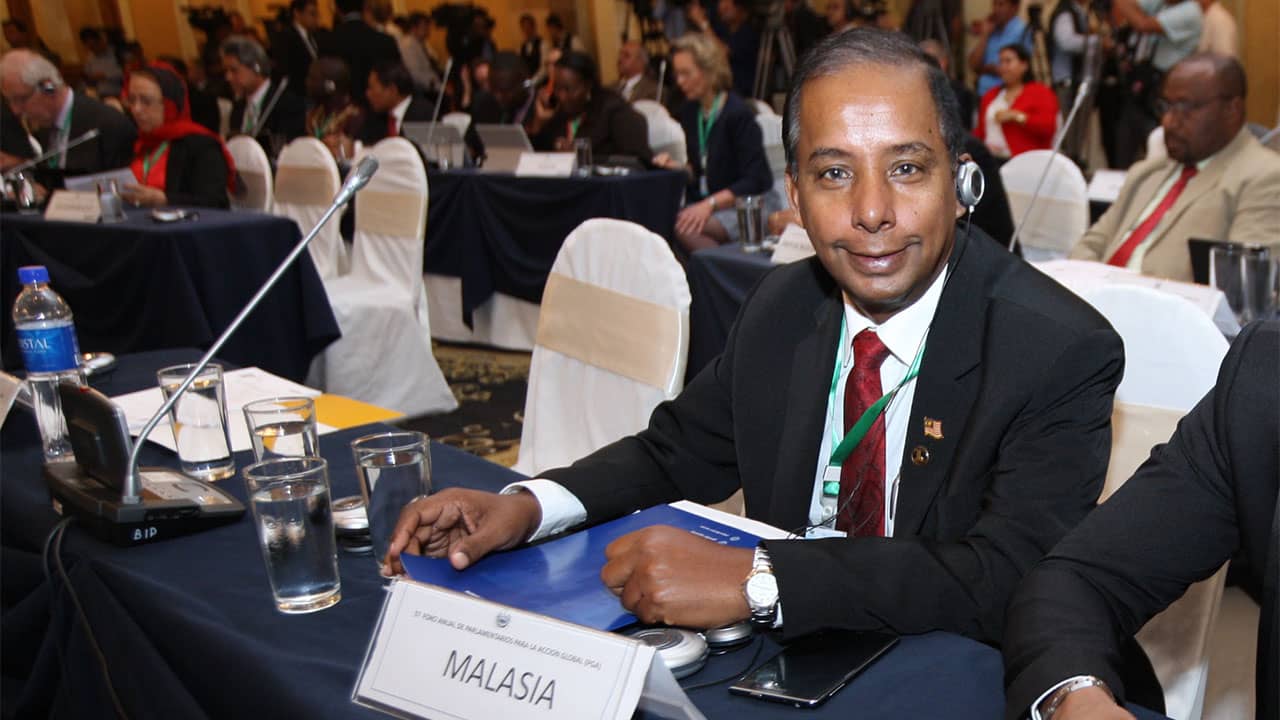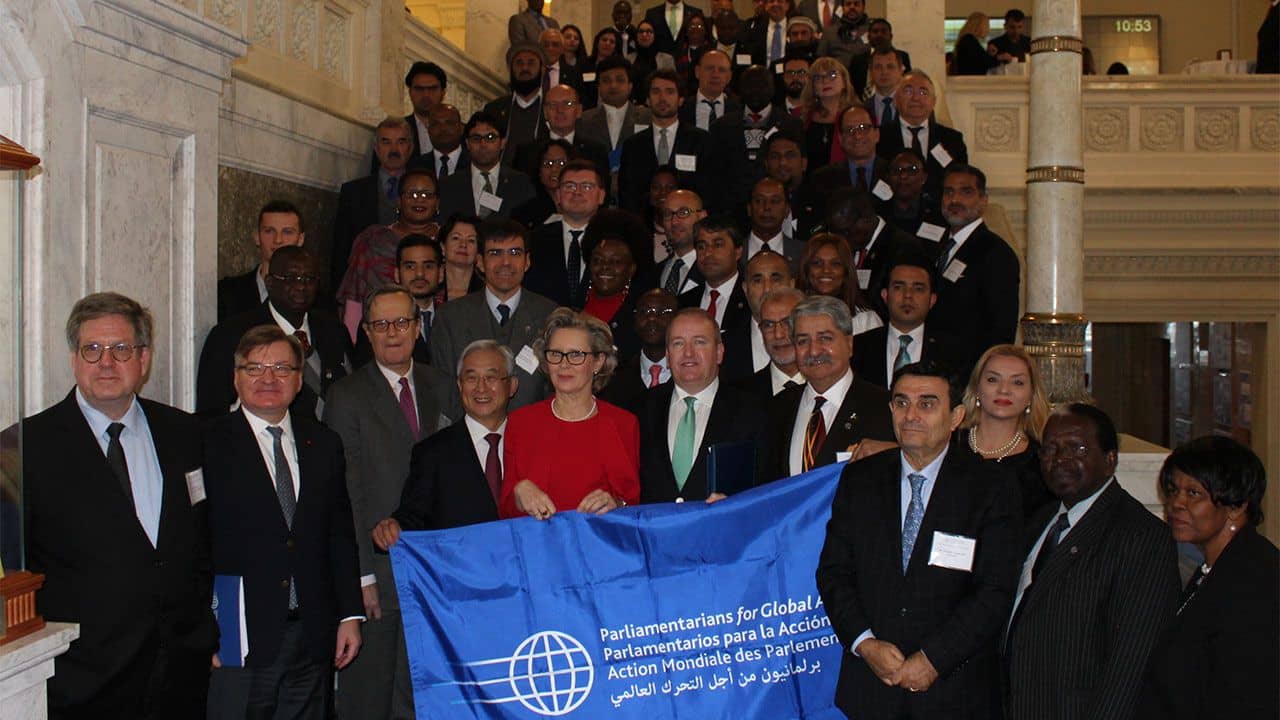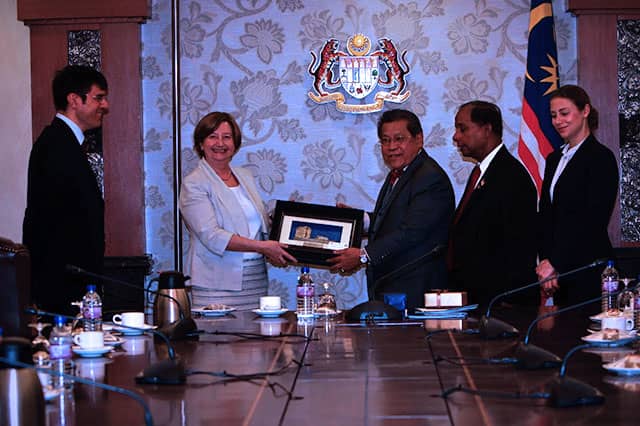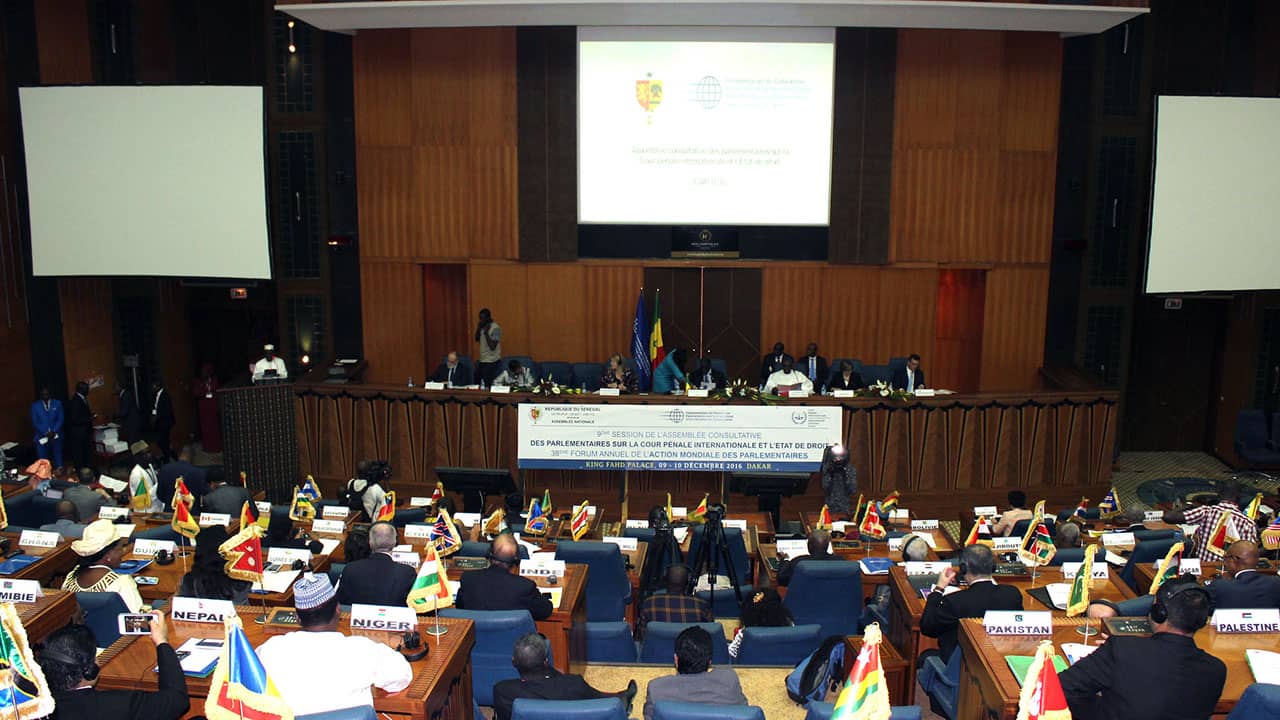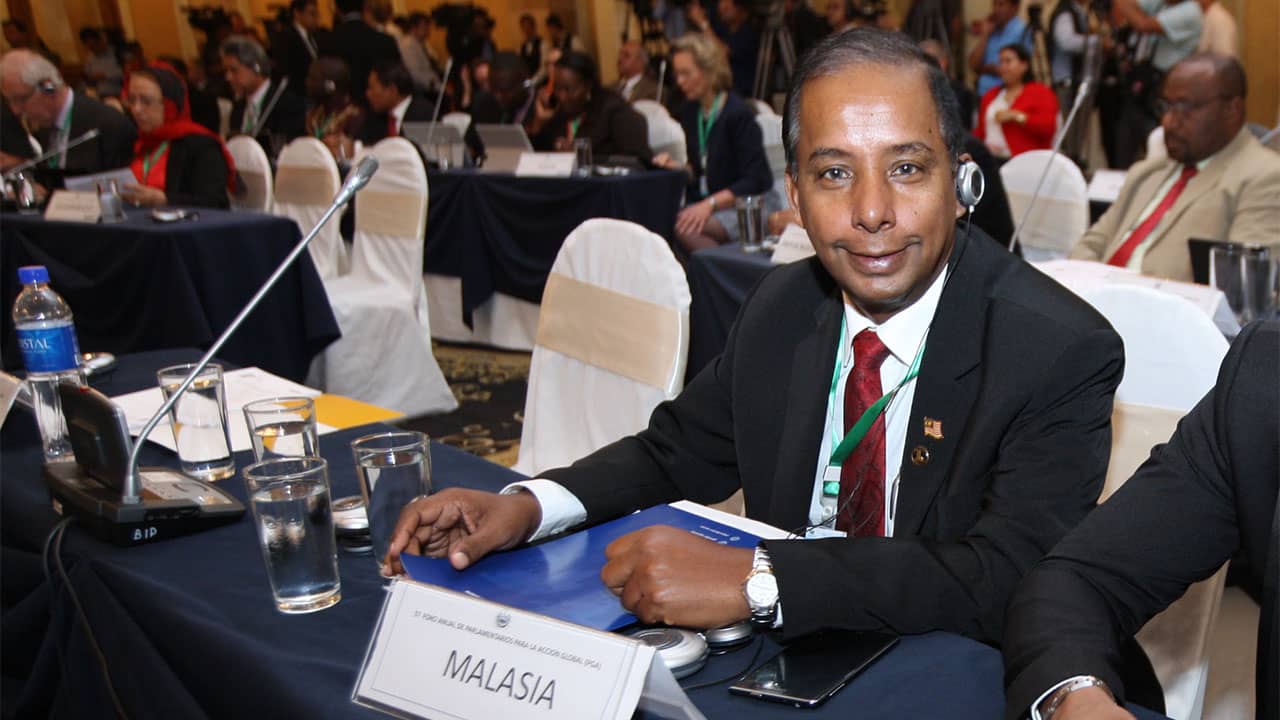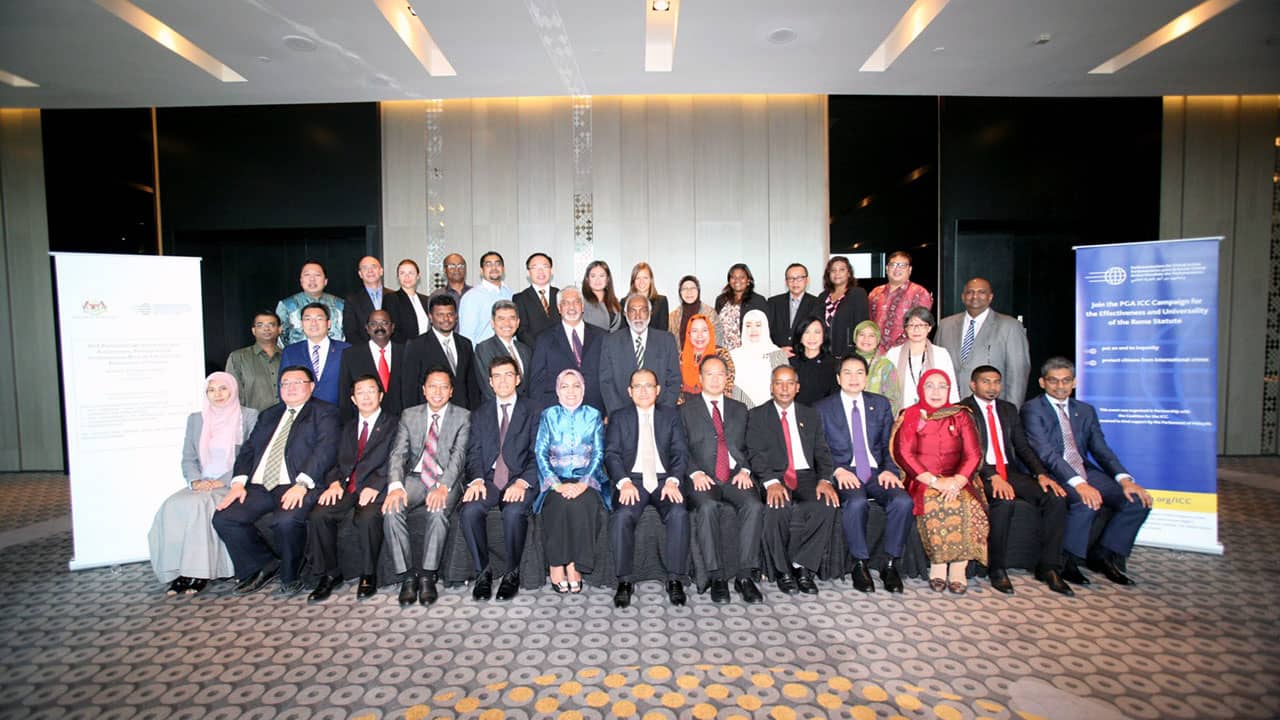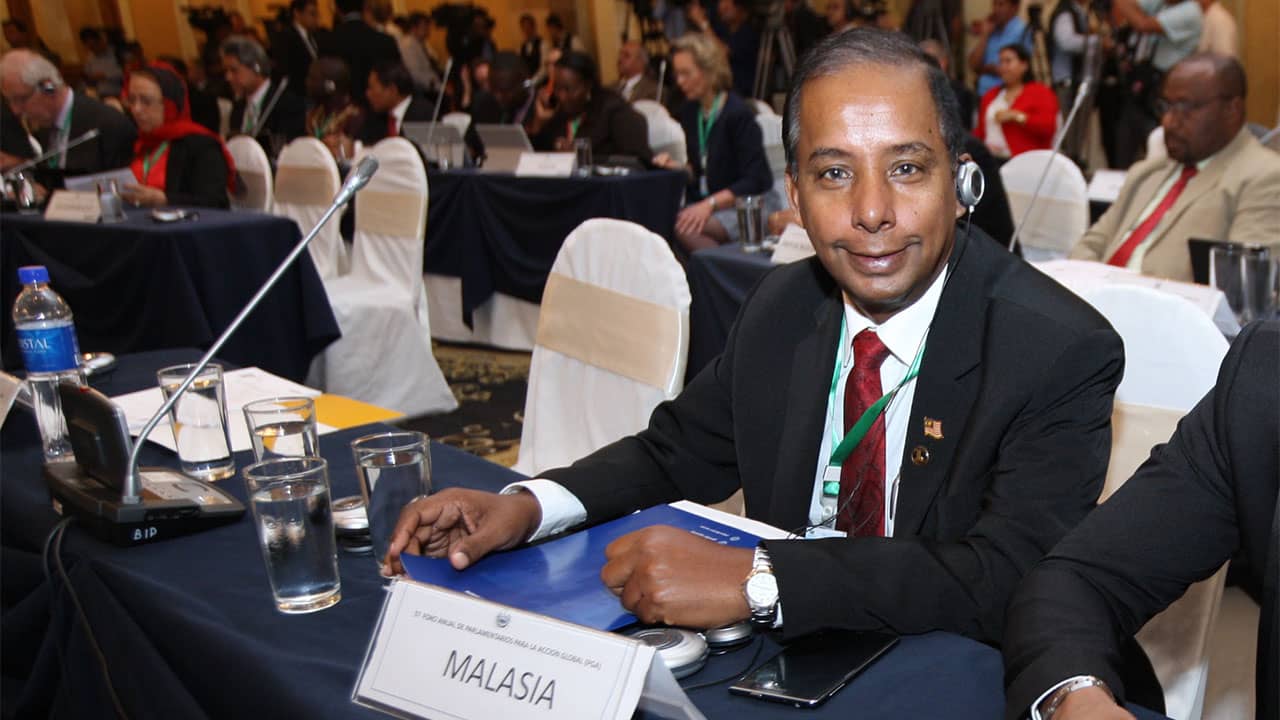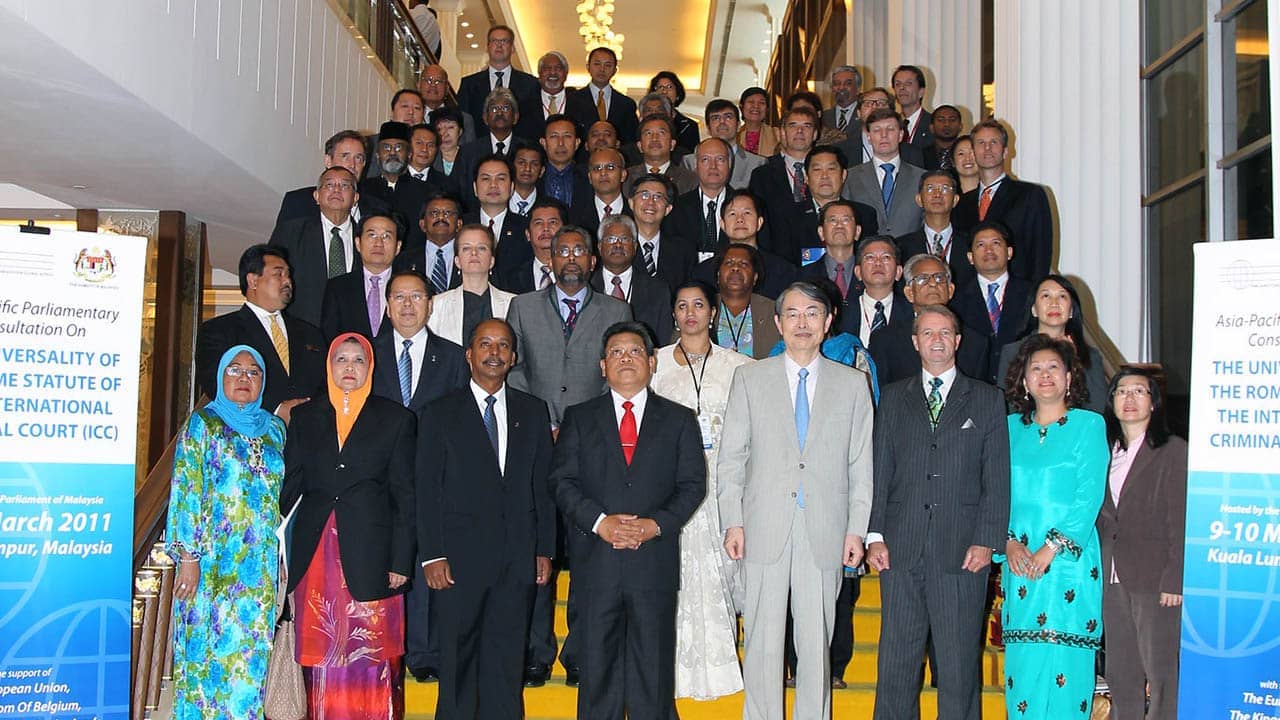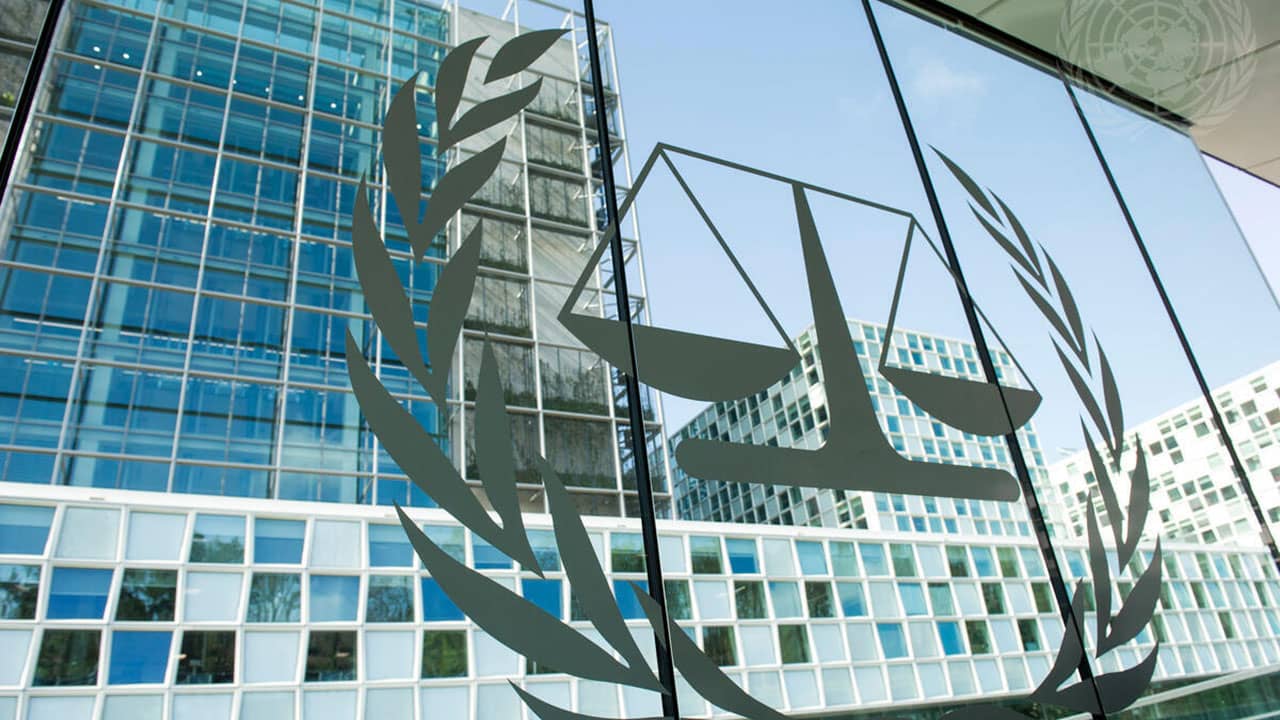Until before May 2012, when states parties held the first Review Conference of the Rome Statute in Kampala, Uganda, Malaysia’s main decision-makers were strongly opposed to the International Criminal Court.
A breakthrough in the process was achieved by parliamentarians from both opposition and government parties in the context of the “Sixth Session of the Consultative Assembly of Parliamentarians for the ICC and the Rule of Law (CAP ICC)”, organized by Parliamentarians for Global Action (PGA) and the Parliament of Uganda in May 2010. In preparation for this meeting, a set of parliamentary questions prepared by PGA were used by PGA members to request their governments to reconsider their position on the ICC and to be involved in the Review Conference. These questions posed to the governments triggered a re-evaluation of the disposition towards the Court and led to the announcement by the Malaysian Minister of Law and Parliamentary Affairs, Mr. Nazri, to announce his full support for the ratification of the Rome Statute. This announcement was followed by the Cabinet decision, in 2011, to ratify the Rome Statute. The Government of Malaysia had announced that it was going to deposit its instrument of accession to the Rome Statute between June and July 2011, in line with the previous commitment of the Minister of Law and Parliamentary Affairs, Mr. M. Nazri, and other high officials at the PGA Asia-Pacific Consultation that were hosted at the Parliament of Malaysia in Kuala Lumpur.
However, the formal deposit of the accession is subject to the completion of implementing legislation (and possibly of its adoption by Parliament). The drafting of this legislation remains in the jurisdiction of the Attorney General.
Rome Statute
Malaysia participated in the July 1998 Rome Conference that adopted the ICC Statute with 120 votes in favor but has yet to accede to the Rome Statute.
Kampala Amendments of 2010
A delegation of Malaysia attended the 2010 Review Conference.
Status on the domestic implementation of the Rome Statute
In July 2011, the revised Commonwealth Model Law to Implement the Rome Statute was adopted by Law and Justice Ministers of the Commonwealth in Sydney, including Malaysia. PGA had participated in the Expert Working Group that revised this pivotal reference legislation. Malaysia can now use this Model to proceed with a national Draft, which will have to be submitted to Parliament in parallel to the Executive process to accede to the Rome Statute. As most Commonwealth countries, also Malaysia has a policy of ratifying treaties only when it has already domesticated its provisions in National Law.
In September 2011- March 2012, the Attorney General delayed the process of drafting the National Implementing Legislation, which is being handled by his Chambers in accordance with domestic practice.
Agreement on Privileges and Immunities of the Court
Malaysia did not sign, and has yet to ratify the APIC
ICC Investigations / Other Investigations
In connection with the 198 Dutch citizens who were killed when a Malaysian flight MH17 was downed in Eastern Ukraine, prosecutors from the Netherlands have opened an investigation into the crash on suspicion of murder, war crimes and intentionally downing an airliner, pursuant to the Law on International Crimes.
Progress and PGA Action
In 2014, in a parliamentary debate related to the deadly attack against Malaysian Airlines flight 17 over Eastern Ukraine, Hon. K.S. and other MPs from majority and opposition call for justice in a united way, welcoming the Prime Minister in Parliament and blaming the Attorney General for the delay of the ICC domestication process, that should prepare the terrain for ratification.
On 10 and 11 December, a Delegation of Parliamentarians from Malaysia attended the Consultative Assembly of Parliamentarians for the ICC and the Rule of Law, Parliament of Italy, 7th session, Rome, 10-11 December 2012.
A few days earlier, on the 5 December of the same year, Consultations on the ICC with Government and Parliamentarians from Malaysia, in collaboration with The Dutch Ministry of Foreign Affairs, and The Hague Institute for Global Justice were held. Additionally, a meeting of Government Officials and Parliamentarians from Malaysia with PGA members, Foreign Affairs Committee, Dutch Parliament was also organized.
On October 24, 2012, an Informal Dialogue with Parliamentarians from Malaysia, PGA Headquarters, New York This in the context of an informal visit by a Group of Malaysian Senators to PGA's HQ office in New York, was held.
On 31 August, 2012, in the Final Document of the Non-Aligned Movement (NAM) Summit that took place in Teheran, the Non-Aligned States Parties to the Rome Statute of the ICC called upon those States, which have not yet done so, to consider becoming parties to the Rome Statute of the ICC (the document also calls to protect the President of Sudan).
In May June 2012, in a parliamentary question time, Minister Nazri responded to a call from Mr. Kula Segaran to complete the accession process as soon as possible by reiterating Malaysia’s commitment to the ICC. In his response, Mr. Nazri however included technical concerns that had been expressed by the Attorney General in the past.
On 14 December 2011, Hon. Kula Segaran, MP, PGA member from Malaysia addressed the tenth session of the Assembly of States Parties to the Rome meeting in New York.
In June 2011, in light of the decision of Cabinet to ratify the Rome Statute, Minister Nazri defended the goverment's position to withdraw the invitation made to Omar Al Bashir to visit Jakarta to attend an international conference. This position was also motivated by Parliamentary mobilisation against the visit.
In April 2011, the Cabinet of Malaysia, upon proposal of the Minister of Law, Nazri, and the Minister of Foreign Affairs, took the decision in principle to accede to the Rome Statute, notwithstanding the opposition of the Attorney General (who had already voiced his concerns at the PGA event in March and in a bilateral meeting with President Song). But the AG is not a Member of Cabinet and does not vote in meetings of the Executive.
On 21 March 2011, a bipartisan group of Parliamentarians issued a press release calling on the government to ratify the Rome Statute– This was followed by a very positive media coverage of the bipartisan “movement” created by PGA to ensure ownership of the accession process: See the extremely interesting story entitled "Nazri, Kula collaborate on International Criminal Court."
However, both the Director-General of the Ministry for Foreign Affairs in charge of International Law and Treaties, Ambassador Dr. Farida Ariffin, and Minister Nazri provided the Consultation with forceful counter arguments in support of the full consistency between the Malaysian Basic Law and the Rome Statute of the ICC. Minister Nazri’s welcome address was firm in indicating that a pro-accession policy-decision would shortly be forthcoming from the Malaysian Cabinet:
"It is my fervent and sincere personal hope that after this Seminar more Asian countries will be persuaded to ratify the Rome Statute. The world events these past two months are evidence of the urgent need for more countries to be part of the ICC.
What moves me personally reasonably enough is not the realisation that the world falls short of being completely just, which few of us expect anyway, but that there are clearly remediable injustices around us which we want to eliminate. It has always been our policy to condemn and penalize perpetrators of the most atrocious acts.
Malaysia's participation would certainly enhance its international prestige and inspire other Asia-Pacific nations as well. It would be a significant contribution to the promotion of international criminal justice. International justice is one of the most important expenditures a Government can invest in, not only for prevention, but also to help reconcile conflict situations in the world. The ICC observes the highest standards of fairness and due process. [...]
The ICC needs unflinching support from the world community. Its integrity and fairness needs to be constantly enhanced and safeguarded by the international community, and that includes us - the Asia-Pacific community. Let us together try to put an end to unimaginable atrocities that have plagued humankind for far too long. [...]
Let us henceforth not further hesitate to ratify the Rome Statute. [Applause] Let it not be stated again that this region is under-represented. Now it is an excellent time for us to adopt a stronger role in the ICC. What better time than now to show that in our conviction of our common destiny and our common responsibilities to forge an harmonious, peaceful and prosperous society in which justice will prevail."
Cf. Minister for Law and Parliamentary Affairs in the Prime Minister's office, Mr. Mohammed Nazri, MP: Opening Address, Parliament of Malaysia, Kuala-Lumpur, 9 March 2011.
The II Day of the Consultation was opened by the sceptical statement of the Attorney General of Malaysia Tan Sri Abdul Gani Patail.
The consultations were attended by 55 prominent legislators from the Asia-Pacific region, and from Malaysia. The Interventions were led by the Minister of Law and Parliamentary Affairs in the Malaysian Prime Minister Dept. Mr. Mohammed Nazri, MP and Mr. M. Kula-Segaran, MPrespectively Chair and Secretary of the PGA Malaysia Organising Committee. The Opening Session was also addressed by the Head of the European Union Delegation in Malaysia Amb. Vincent Piket.
In March 2011, PGA held the II Asia-Pacific Consultations on ICC Ratification and Implementation in the Parliament of Malaysia with the participation of the President of the ICC, Judge Song. These consultations also supported the subsequent ratification processes in the Philippines, the Maldives and Vanuatu, and advanced the process in a number of Pacific Islands.
A delegation from Malaysia, including PGA Members, also attended the Kampala Review Conference as observer.
In May 2010, at the end of the 6th CAP ICC, where Hon. Kula Segaran delivered a forceful speech detailing the reasons for Malaysia and other Asian countries to join the ICC, Minister of Law Nazri delivered a closing keynote speech in which he announced his political commitment to bring Malaysia into the Rome Statute.
In March, April 2010, PGA Member Kula Segaran MP questioned the Government concerning the ICC and the Kampala Review Conference, using the Sample Parliamentary Questions circulated by PGA. The Minister of Law starts to actively reconsider the ICC dossier within Cabinet and responds positively to PGA’s and Mr. Kula Segaran’s invitations to attend the 6th CAP ICC in Kampala and the opening session of the Review Conference.
“Malaysia has undertaken a detailed study and held consultations to study the legal implications arising from the provisions of the Rome Statute. Despite several concerns, Malaysia is fully committed to the principles and the establishment of the International Criminal Court and their integrity.”
In February 2009, at the UPR session on Malaysia France recommended it ratifies the Rome Statute. Malaysia did not accept the Recommendation and provided instead a general response:
On 21 January, 2009 a Press Release by NGOs in Malaysia was issued: In reaction to the violence in Gaza, the Malaysian Government supported the adoption of a Parliamentary Resolution calling for the establishment of a UN-sponsored War Crimes Tribunal to investigate potential war crimes. The Malaysian Bar Council issued a press release welcoming this measure, but emphasized that the government should go further to promote international peace and stability by immediately becoming a party to the Rome Statute of the ICC.
In 2007, on the 14 February 2007, The Malaysian Bar Association met to discuss the ICC. PGA benefited from the involvement of the MBA to support the advocacy at the level of civil society in Malaysia.
In 2006, Hon. Kula Segaran attended the first PGA Asia Pacific Parliamentary Conference on ICC Ratification.
Upon an invitation by the Human Rights Commission of Malaysia (SUHAKAM), a statutory body established by the government of Malaysia, the President of the ICC Mr. Philippe Kirsch visited Kuala Lumpur to provide information on the Court’s mandate and jurisdiction. During the visit former Attorney General of Malaysia, Tan Sri Abu Talib Othman, and Chairman of SUHAKAM, reportedly expressed the hope “that Malaysia will seriously consider subscribing to the Rome Statute and submit to the jurisdiction of the ICC.”
In October 2005, PGA members reported that the Government announced in Parliament that they had created an Expert Commission to study the Rome Statute and that the government, and that the government has continued its resistance to sign a BIA with the US.
In December, 2004, Mr. Kula Segaran, MP (Opposition) joined PGA and participated in PGA's Consultative Assembly of Parliametnarians for the ICC and the Rule of Law, III session in Wellington at the New Zealand Parliament.



